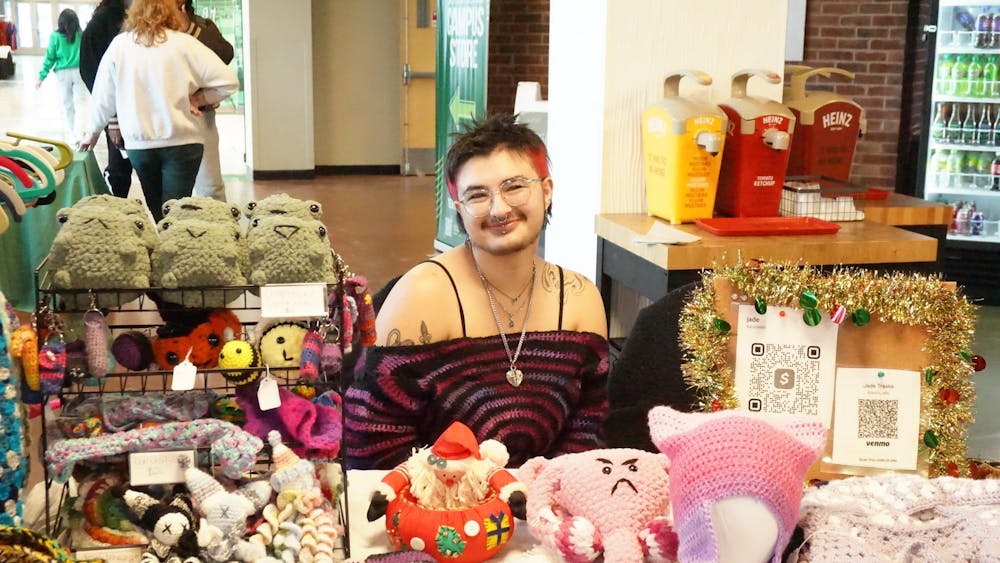The American Red Cross held a blood drive Tuesday, Oct. 3 in Eastern Michigan University’s student center ballroom.
The American Red Cross, throughout the month of October, has been collecting donations for their national inventory. While some signed up for appointments beforehand, walk-ins were accepted. Students and the general public were welcomed to donate.
In the wake of the Las Vegas mass shooting, blood drives provide essential supply to be gathered and sent out to those not only greatly injured in tragedy but anyone else in desperate need of blood for medical needs. Todd Kulman, external communications director for the American Red Cross, expressed his condolences to those who lost their lives at Las Vegas and emphasized the importance of their blood supply.
“We’re working in close coordination with hospitals [at Las Vegas] to provide comfort and support,” he said.
There’s often more of an influx of blood donors after a tragic event like a shooting or a natural disaster. According to the Washington Post, less then 24 hours after the mass shooting, lines of people were rolling around the block to donate blood for the cause. Kulman says this is a common reaction – people usually don’t think about donating until disaster prompts them.
“After a disaster, people want to step up and help, but the need for blood doesn’t take a vacation,” he said. “I’m certainly not faulting anyone that does step up and help but blood does have a shelf life.”
Less then ten percent of eligible donors in the nations population donate blood, the most common reasons why not being either fear of needles or not really thinking about it. According to Kulman, donations slow down a lot in the summer and winter, making it very difficult for the Red Cross to provide the blood needed for patients in hospitals around the country.
Amanda Bastian and Mitchell Devore, members of the Alpha Phi Omega co-ed fraternity, volunteered at the blood drive. They weren’t surprised to hear that donations spiked during tragedies.
“There’s always someone sick that needs help and donating blood is an easy thing to do,” Bastian said. “I feel like people do it more often when there’s a tragedy because it’s recognized – just like when there’s hurricanes people go out and volunteer only at the beginning because it’s well known.”
“Most people are busy living their own lives and don’t take a lot of time to consider people they don’t know,” Devore said. “When you have these really horrible tragedies, they permeate into every space we’re in, and it gives people that jolt of remembrance like ‘oh yeah, this is something I can do’.”
Alpha Phi Omega has worked with the American Red Cross before, having been the first to volunteer for the last few years when they come by for blood drives.
A few walk-ins sat waiting for their turn. Molly Lupo, a senior studying early childhood development at EMU, agreed that people often didn’t know how much blood was actually needed by hospitals.
“I was looking it up last night – about how much blood people need when they get surgery and – it’s a lot.” She said, “I think it’s just a lack of information.”
Mark Solo, a sophomore majoring in biology, said the Red Cross could benefit from simply making the experience of giving blood as positive as possible.
“There’s a certain sense of pride knowing you helped out, “ he said. “Anything they can do to make the experience positive and draw people in that don’t normally want to be stuck with needles is good.”
The Red Cross will be hosting more blood drives throughout Michigan counties through Oct. 15. Their website provides dates and times for futures donation spots.









